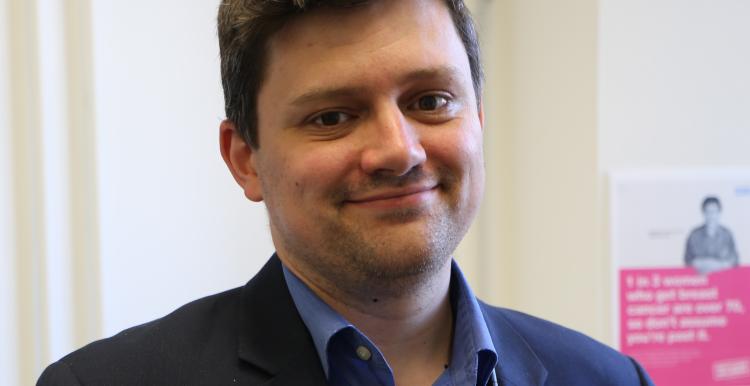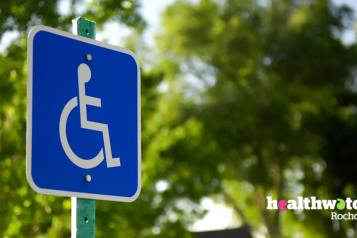Ben Greenwood shares his story of being diagnosed with epilepsy to help raise awareness and break stigma

Ben was diagnosed with Juvenile Myotic Epilepsy when he was 27 and spent the next two years in denial and not managing his condition. “The world caved in for me at first, I thought oh I have all these ambitions for my career and stuff like that, what are employers going to think? Luckily, I had a very understanding employer and I’ve managed to climb the ladder and fulfil my ambitions, but I am sure a lot of people feel that there is such a stigma attached they don’t even broach the subject”.
Ben’s first visible symptoms of epilepsy began as having twitches in the morning and so his wife (then partner) convinced him to go and see his GP who referred him for tests which included an EEG scan and a strobe lightning test.
Two weeks later Ben received a letter stating suspicious activity had been found in his brain and he needed a follow up appointment. Ben was told he needed to stop driving immediately while they investigate further. “This was a massive shock to the system. I’ve been driving for many years and it’s a big, big lifestyle change when you’ve got to stop driving. During that period when I told people I wasn’t allowed to drive they automatically assumed I’d been a naughty boy, but I had to give up my licence voluntarily”.
Following further tests Ben was diagnosed with Juvenile Myoclonic Epilepsy which is characterised by jerks that can build and build and can result in a tonic clonic seizure. Before diagnosis Ben had a very stereotypical view of epilepsy “before I got diagnosed, I thought of epilepsy as kids, 14-year-olds falling to the ground rolling around, frothing at the mouth. That was the idea I had in my head because that was the only experience, I had of it. So, when I got told I had epilepsy when I was a 27-year-old adult it was a massive shock to the system”.
For two years Ben was in denial, wasn’t taking his medication or managing his condition and then he had his first tonic clonic seizure on New Year’s Day. The morning after celebrating New Year’s Eve Ben experienced pronounced jerks to the extent that he was physically unable to eat his breakfast. A short time later Ben turned around to see his mum and wife running around upset and his dad trying to phone an ambulance. His mum told him that he had lost consciousness and started shaking, Ben’s muscles were also hurting. “Even after that I still wasn’t in the frame of mind to manage it, I was better in terms of accepting it but it’s such a lifestyle change. You have to give up driving, only drink a couple of pints and lifestyle change was what I didn’t want”.
That was until his second seizure at work which took place a week before his wedding. The wedding and subsequent photographs were marked by a big bruise on his head gained through his seizure and that was when Ben realised he needed to start controlling his epilepsy.
“I was annoyed at myself for not managing it in the first two years because when you have a seizure like that it takes you a long time to get over it. Not just physically but you sort of suffer from a bit of depression as well. So, you’re not right for a few weeks”.
However, through small lifestyle changes and managing his condition Ben can still live a full life. “It hasn’t impacted me feeling like I can’t do things because I clearly can. I just have to be sensible, so making sure I get a good night’s sleep, being well rested, trying to be stress free, not drinking too much and doing things in moderation. It’s different for different people, each person has to work out how best to manage their condition”.
Ben has now come to terms with having epilepsy and wants to help change perceptions of the condition and plead to people who have the condition to not ignore it, try to come to terms with it and manage it.
“In terms of services, it isn’t great for people with epilepsy, I can’t fault the consultant but basically now it is just a 5-minute check every year over the phone where they ask if I have had any seizures and if I am feeling well. That’s important for me for keeping my driving licence, but I wish I had more support when I first started to come to terms with it. Consultants are just looking at the medical aspect and they don’t really touch on the impact on you as an individual. If I had more support when I first started, if my family had more support, it may have helped me come to terms and process it”.
Epilepsy - The Scared Disease - Amelia's Story
If you have recently been diagnosed with epilepsy you can find support, information, and advice at:
